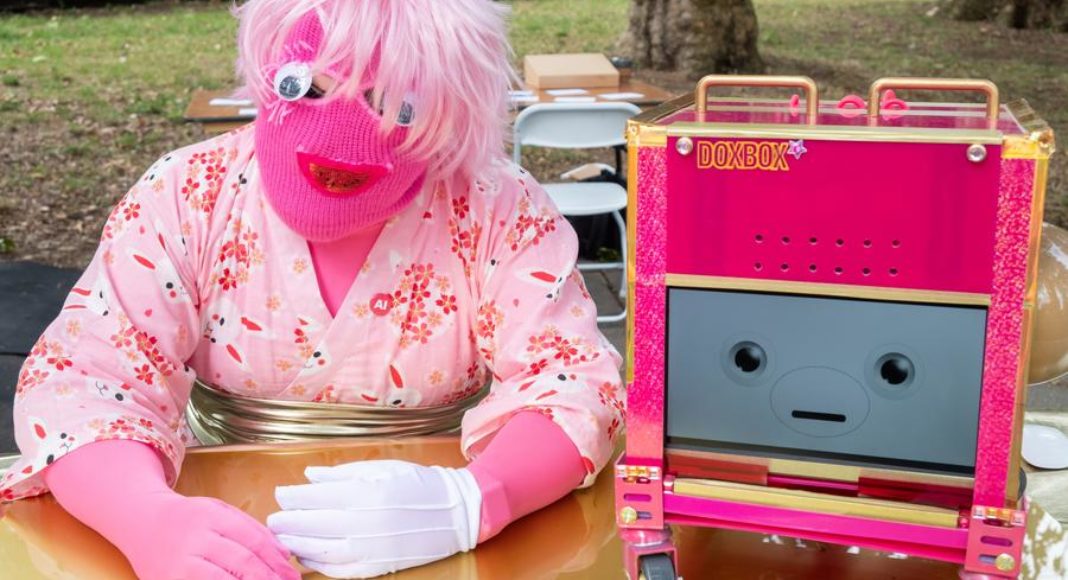Exhibitions & Art, Installation.
Three new artworks will be exhibited at the Open Data Institute to raise questions about the role, veracity and impact of digital duplication through the curatorial theme Copy That? Mr Gee, Alistair Gentry and Ben Neal working with Edie Jo Murray and Harmeet Chagger-Khan, were commissioned by the ODI's Data as Culture art programme to explore data, both critically and materially. Data as Culture was the first programme launched by the ODI when it opened its doors in 2012. The programme aims to create conversations around and with data, inviting opinions from across society and making data accessible to everyone. Copy That? considers what happens when we copy data and what gets lost or gained in translation. Art can enable us to consider how technology helps us understand the world, but also how it affects our autonomy. Performance poet Mr Gee's Bring Me My Fire Truck seeks to artistically explore the 'soul of Brexit' through William Blake's poem Jerusalem. Created as a text piece symbolically displayed as a departures board at an airport, this artwork sees the poem translated from English through the 23 other official European languages and Welsh, using Google Translate. Meaning deteriorates and reforms according to different algorithmic interpretations, assumptions and corruptions. As it cycles through, it becomes a hybrid version of itself, at once funny and disturbing, ever changing its perception and its point of view. In his work DoxBox Trustbot, artist Alistair Gentry has created a hot-pink puppet-robot-hybrid to test how much trust we place in online apps and services. DoxBox questions if it is worth disregarding online security and data rights, in order to easily access services online. It wants to find out how free or cautious we are with data about us, drawing our attention to the many data versions of ourselves that might be created online. In Mood Pinball, created by artists Ben Neale and Harmeet Chagger-Kahn, players are taken on a sonic journey of the dreamlike city-scape world of neurodiverse artist and collaborator Edie Jo Murray. Navigating the digital version of a traditional pinball machine, the player's goal is to collect noise level data from different locations, which have an impact on Edie's mood.




